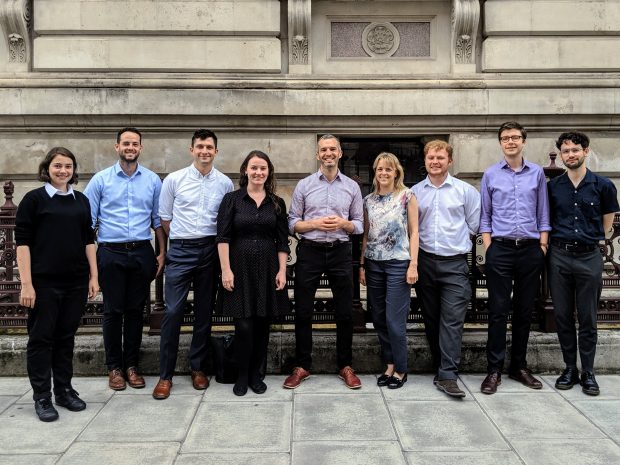
Oliver Dowden announced our new £1 million three year funding deal with university partners last week. We’re delighted to be working with Brunel, Essex, Lancaster and York to build on what we’ve achieved so far.
Work on making a success of this next phase is already in full swing and it’s an exciting challenge for all of us in the Open Innovation Team. I know people are interested in what we’re doing so I thought I’d share latest thinking on our priorities and invite feedback.
Our phase two strategy has five main pillars: increase our policy impact, raise our profile, diversify our income, improve team management and deliver benefits for our partners. Here’s a little more detail on each:
Increasing our impact: our team exists to help policy-makers generate analysis and ideas for priority projects. We’ve managed to get some good wins under our belt so far, but we know that we can achieve much more. To do this, we want to widen and deepen the support we offer our policy customers, collaborate with more academics and refine the tools we use to weave academic insight into policy discussions (e.g. through various kinds of events, slide packs, think pieces and literature reviews).
Raising our profile: during our pilot phase, we wanted to concentrate on demonstrating that we could do useful policy work. Having achieved that objective, it’s time for us to focus a bit more of our energy on raising our profile inside and outside Whitehall. We’re hoping to bring in a comms specialist to help us do this, though it’s obviously a challenge for the entire team.
Diversifying our income: an unusual feature of our team is our funding model. Cabinet Office covers our back office costs and the sponsorship income we receive from our university partners covers most of our staff and project costs. This model worked really well during the pilot phase, but it’s risky to rely on one source of income and it doesn’t give us enough to grow the team as we’d like so we’re working to diversify. We’ve already begun to charge Whitehall departments for our time and we’re considering various other options, including working with other parts of the public sector. The aim is to ensure that, by 2022, our university sponsorship income accounts for no more than 50% of our total funding.
Improving management and reporting: as the team grows and we exit our start-up phase, we want to get better at capturing and reporting on key performance indicators. We did this during our pilot, but it was too time consuming and painful. We’ve purchased a customer relationship management system and hired an operations manager to help us improve. As our evaluation showed, the team was also too reliant on me during our pilot. So now that we’ve recruited some new senior policy advisors, I’ll be stepping back a little from project work and concentrating more on helping our new recruits deliver.
Delivering partner benefits: our team wouldn’t exist without the support of our partners so we’re committed to ensuring that they receive all the benefits we’ve agreed to deliver for them. That includes regular visits to meet their academics, hear about their research and explain how they might be able to increase its impact. It includes collaborating with their academics where there’s a good fit between their expertise and the projects we’ve lined up with our policy customers. And it also includes Policy Schools for partner university students to give them a taste of the policy-making process.
In reality, all of these partner benefits are mutually beneficial and we will continue exploring new ways in which we can collaborate with our partners. For example, we’ve recently started talking to Brunel about prototyping a training course for officials based on some training they’ve developed for intelligence analysts.
As always, it's also worth remembering that we don't have an exclusive relationship with our university partners, so there will be lots of opportunities for academics from other institutions to get involved in our work. For example, academics from at least a dozen different universities, including Edinburgh, Nottingham, Bath, Cardiff, Cambridge, Oxford and Harvard, have been involved in work we've been doing for the Centre for Data Ethics and Innovation over the past six months. This is standard practice for us and we will continue trying to weave the best academics from the UK and around the world into the policy-making process.
So, that’s it. Some tentative priorities for the next three years. Please feel free to feedback below or get in touch if you have any ideas. Our team email is openinnovation@cabinetoffice.gov.uk.